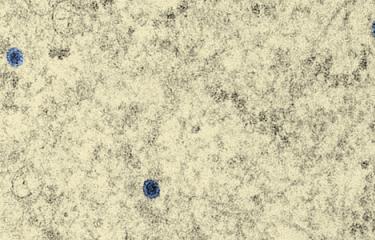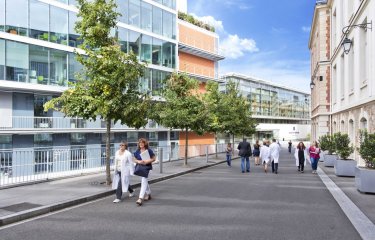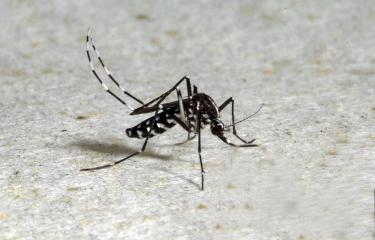Researchers from the Institut Pasteur (Paris) have described the vector competence of the mosquito Aedes albopictus from south of France to different genotypes of the Zika virus. They demonstrate that this Ae. albopictus from France transmits the Zika virus of African origin better than the one of Asian origin.
We all remember the Zika epidemic that hit the Pacific Islands (2013-2014) and the American continent (2015). In January 2016, the Institut Pasteur de Guyane was at the origin of the first complete genetic sequence of the Zika virus circulating in America. In February 2016, the World Health Organization (WHO) declared the Zika epidemic a "public health emergency of international concern." In May 2016, the Institut Pasteur brought together experts from around the world at an International Zika Summit(1). "Even though only 20% of human cases are symptomatic, this epidemic caused millions of cases," recalls Anna-Bella Failloux, head of the Arbovirus and Insect Vectors Unit at the Institut Pasteur.
The Zika symptoms evoke those of dengue or chikungunya, transmitted by the same mosquito species, but with additional unusual severe clinical symptoms, neurological disorders such as Guillain-Barré syndrome in adults and microcephaly in newborns.
The mosquito Aedes albopictus from south of France is more susceptible to the African Zika virus
The new results published by the Arbovirus and Insect Vectors team, in collaboration with the Epidemiology of Emerging Diseases Unit (also at the Institut Pasteur), describe the vector competence of Aedes albopictus from the south of France to different genotypes of Zika virus (ZIKV). “We demonstrate that Aedes albopictus mosquitoes from France are less susceptible to the Asian genotype of ZIKV, circulating in the Caribbean and the Americas, than to African ZIKV,” continues Anna-Bella Failloux. This Ae. albopictus from France transmits 10 to 20 times better the African ZIKV and becomes infectious from the 7th day after taking an infected blood meal.”
This new Institut Pasteur discovery specifies the type of Zika virus to which the French could soon be exposed. During the summer 2016, following the Zika epidemic in South America, hundreds of imported cases were reported in France, but fortunately no autochthonous transmission was detected either in France or in Europe. Three years later, in October 2019, while few active outbreaks of Zika are observed in the world, two autochthonous Zika cases are reported in the Var Department(2) (French administrative division), and then a third case quickly after (read article on the Research Journal). Epidemiological investigations and attempts to genotype the viral strains are still on-going.
1. International Zika Summit 2016 en partenariat avec l’OMS, l’Inserm, l’IRD, le Wellcome Trust et la Commission européenne.
2. Giron et al. 2019. Vector-borne transmission of Zika virus in Europe, southern France, August 2019. Euro Surveill. 2019 Nov;24(45). doi: 10.2807/1560-7917.ES.2019.24.45.1900655.
Source
Zika virus threshold determines transmission by European Aedes albopictus mosquitoes, Emerging Microbes and Infections, November 18, 2019
Marie Vazeille1, Yoann Madec2, Laurence Mousson1, Rachel Bellone1, Hélène Barré-Cardi3, Carla Alexandra Sousa4, Davy Jiolle5, André Yébakima6, Xavier de Lamballerie7, Anna-Bella Failloux1*
1Institut Pasteur, Department of Virology, Arboviruses and Insect Vectors, Paris, France
2Institut Pasteur, Department of Infection and Epidemiology, Emerging Diseases Epidemiology, France
3Office de l’Environnement de la Corse, Observatoire Conservatoire des Insectes de Corse, Corti, Corse
4Global Health and Tropical Medicine, Instituto de Higiene e Medicina Tropical, Universidade Nova de Lisboa, Lisboa, Portugal
5UMR MIVEGEC (IRD 224-CNRS 5290-UM), Maladies Infectieuses et Vecteurs: Ecologie, Génétique, Evolution et Contrôle, Institut de Recherche pour le Développement (IRD), Montpellier, France
6VECCOTRA, Rivière salée, Martinique
7Unité des Virus Emergents (UVE), Aix Marseille Université, IRD 190, INSERM 1207, IHU Méditerranée Infection, Marseille, France
*Correspondence to: A.-B. Failloux (anna-bella.failloux@pasteur.fr)





